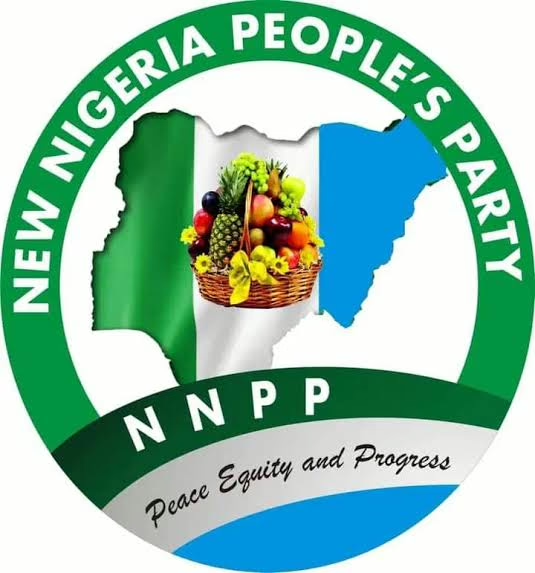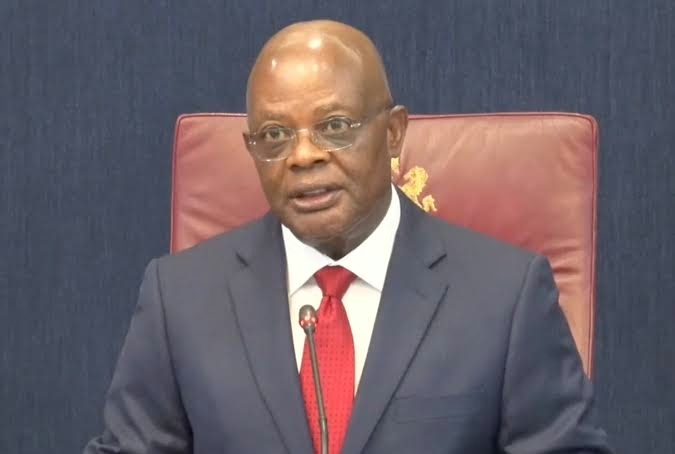By Eze Onyekpere
The Federal Government’s retained revenue, which is the actual revenue realised before its augments with borrowed and deficit financing resources, is dwindling by the day. It is dwindling when compared with the expenditure and the need for investment in all sectors of the economy. However, the surprise is that this low revenue to expenditure situation is not making the headlines. We are stuck with headlines about permutations on the 2023 presidency, one year after the 2019 elections, incessant killings and corruption in high places. Nigeria is going bankrupt and it seems no one in a position of authority cares.
Last week, the media reported the interaction between the Minister of State for Finance and the House of Representatives Committee on Finance during the consideration of the Medium-Term Expenditure Framework 2021-2023. The minister stated that the retained revenue for the period January to June 2020 was in the sum of N1.81tn which represents 68% of the prorated target. Thus, we missed the projected revised revenue mark by 32%. On the other hand, the Federal Government had spent N4.45tn within the period and this represents 89.3% of the prorated N4.99tn which should have been spent within the period in accordance with the revised budget. The implication is that we spent N2.64tn which we have not earned. The earned revenue of N1.81tn represents 40.2% of the overall expenditure of N4.45tn. Essentially, we have not realised up to 50% of our expenditure and the extra N2.64tn which is 59.8% of total expenditure is based on borrowing and deficit financing. Even if we got 100% of the revenue projection, we would still have been in great deficit.
The breakdown of the expenditure showed that N1.57tn was spent on debt service while personnel including pensions took N1.61tn. Combined, debt service and personnel amount to N3.18tn which is 71.4% of the overall expenditure. The minister further indicated that by July, about N1tn had been released for capital expenditure which came up to 22.4% of the overall expenditure for the period. It is important to note that while other expenditures were stated as of the half year of June, it is the capital expenditure that we got the figures up to July, may be to shore it up a little. And the remaining money to complete the N4.45tn figure must have gone to statutory transfers.
The revenue performance showed that the Federal Government’s oil share was N859.1bn which is 169% performance and above the prorated sum in the reviewed budget. This is understandable considering that oil now sells above the crude oil benchmark price adopted in the revised budget. Non-oil taxes totalled N581.23bn which is 72% of the revised target, being off the mark by 28%. This shows that we are not in control of the realisation of resources needed to fund the federal budget. The price of oil is not within our control and the fact that it has picked up in the international market has nothing to do with our inputs or managerial ability. The non-oil taxes which are ours to administer did not meet the target. Even if it is admitted that the coronavirus pandemic had badly affected economic activities making it impossible to generate targeted non-oil taxes, the revenue generating capacity is still too weak to meet necessary expenditure.
The implications and breakdown of the foregoing figures show that if we are to live on our actual earnings, after paying salaries and pensions of N1.61tn, the Federal Government had only N200bn left in its kitty which was not enough to pay for debt service in the sum of N1.57tn, even if we are to discount capital expenditure of almost a trillion. The crystalising fact is that we are borrowing to service previous accumulated debts. However, the minister stated that recoveries and stamp duty collection during the period had yet to be computed and added to the revenue. This raises the poser; why then is it taking so long to account for stamp duty and recoveries?
What has been the reaction of the government to this literal fire on the mountain fiscal scenario? Is anyone in government taking a haircut on his entitlements? Have we stopped the culture of waste? Have we stopped the culture of corruption? It is within this period of poor revenues that the officials of the Niger Delta Development Commission awarded fat unapproved and illegal COVID-19 support to themselves. What action has the government taken on its proposed reduction in the cost of governance in terms of reviewing and making actionable the Oronsaye committee report? In other climes, there should have been several expert groups working on how to shore up the finances in the short, medium and long terms. No, not in my dear country, Nigeria. We keep walking like drunks from one challenge to another and never resolving any.
The above figures show clearly that our debts have become unsustainable because in every sense of it, we are no longer able to service the debts, not even paying back, if we do not further borrow. Once any organisation or country has reached the state of borrowing to pay back previous debts, any attempt to put a spin to the debt crisis is an exercise in futility meant only to deceive the uninitiated. The unfortunate aspect of it is the Federal Government has legislative approvals for new loans which have not been drawn down. Imagine what the ratio of the retained revenue to debt service will be when we draw down about $22bn more in loans. Playing the ostrich and hiding our head in sand will not solve this huge fiscal crisis. It will rather make it get out of hand.
So, where do we go from here? In considering the MTEF 2021-20123, the National Assembly should put a moratorium on all fresh borrowing; and take time to reconsider already approved but to be drawn down loans. But the bulk of their time should be spent on blocking leakages in the system. They should also tell themselves the truth, which is that they can block leakages and stop corrupt practices if and only if they live above board because Nigerians are tired of the embarrassment of federal legislators being taken to the cleaners by officials called to account for their stewardship.
So, where do we go from here? In considering the MTEF 2021-20123, the National Assembly should put a moratorium on all fresh borrowing; and take time to reconsider already approved but to be drawn down loans. But the bulk of their time should be spent on blocking leakages in the system. They should also tell themselves the truth, which is that they can block leakages and stop corrupt practices if and only if they live above board because Nigerians are tired of the embarrassment of federal legislators being taken to the cleaners by officials called to account for their stewardship.
For the President, the Ministry of Finance, Budget and National Planning, it is time to open up and acknowledge that the extant economic and fiscal model is not working and seek fresh ideas to get the economy back on its feet. The continuation of the extant scenario can only bring fiscal anarchy in the next couple of months and years.
Culled from the Punch Newspaper











Leave a Reply